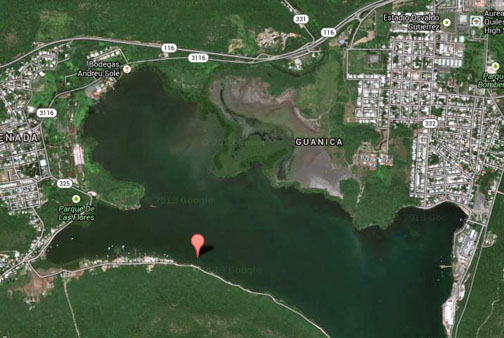EPA, Land Authority pact to protect Guánica wetlands


The excavation directly impacted approximately 60 acres of wetlands in the Guánica Bay and indirectly damaged about 100 more. (Credit: Google Maps)
The U.S. Environmental Protection Agency announced Wednesday it has signed a legal agreement with the Puerto Rico Land Authority to stop the local agency from damaging wetlands on a property in Guánica.
The excavation of the wetlands caused sediment to wash into the Guánica Bay, threatening water quality and potentially impacting sensitive coral reefs. The Land Authority did excavation earlier this year without first obtaining a permit from the U.S. Army Corps of Engineers, as required by the Clean Water Act. Under the agreement, the land authority has halted construction and will take steps to control runoff from the excavated areas.
“The damage to these wetlands has jeopardized water quality in the bay and threatens sensitive coral reefs,” said EPA Regional Administrator Judith A. Enck. “Wetlands provide enormous environmental benefits for people and wildlife. They trap floodwater, filter pollution and are particularly effective in controlling the sediment that washes into rivers, lakes, streams and bays.”
Beginning in September 2013, the Land Authority used excavators and other heavy equipment to dig up and clear approximately 60 acres of wetlands on the Finca Maria Antonia property in the Ciénaga Ward in Guánica for potential use as a sugar plantation.
The excavation directly impacted approximately 60 acres of wetlands and indirectly damaged about 100 more. The excavation caused stormwater containing soil and sediment to run into wetlands on the property and into the Guanica Bay.
Under the agreement, the local agency has stopped excavating and will take immediate steps to control erosion at the property, including installing hay bales, mulch and dig basins to catch sediment before it washes into the bay. The authority will also develop short and long-term erosion and sediment controls, implement temporary and permanent stabilization practices, and provide information on future land disturbances at the site.
“The EPA supports the development of new agriculture projects throughout Puerto Rico, but this agricultural expansion does not have to occur in wetlands,” added Judith Enck. “There is adequate farmland where new farms can be located.”












